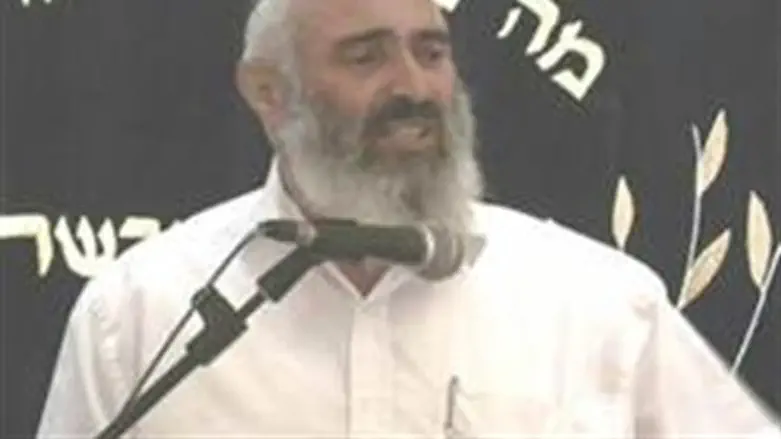
Rabbi Yaakov Shimon of Nahalat Tzvi refused to cooperate with police interrogators on Wednesday after being taken in for questioning pursuant to a religious opinion he gave three years ago.
Rabbi Shimon related to Arutz Sheva he was questioned because he signed a circular containing a rabbinic opinion that said safeguarding Jewish lives required one not to invite Arabs into homes or schools, not to employ Arabs, and not to do business with Arabs.
The circular was published following the Merkaz HaRav yeshiva massacre on 6 March 2008, during which five students were murdered and eleven more were injured. The Arab gunman who perpetrated the attack was killed as well.
Rabbi Shimon told Arutz Sheva that he refused to answer any questions without having a lawyer present. Police, he says, told him they would look into providing a lawyer for him and proceeded to ask question after question without doing so.
"They asked me a lot of questions, but all I said was 'keep silent' and 'this is political persecution' over and over," Rabbi Shimon said, adding he will not retract his signing of the circular and will not apologize or express remorse for its contents.
Police also detained and interrogated Rabbi Chaim Greenspan of Yeshivah Mitzpe Jericho on Wednesday for signing the same document.
Police persecution of rabbis for expressing religious views unpopular with Israel's left has been on the rise under the Netanyahu government.
Rabbis Dov Lior and Yaakov Yosef were arrested and interrogated for writing an introduction attesting to the coherent reasoning used in the book Torat Hamelekh, which discussed in detail the obligations of a Jewish army vis-a-vis a non-Jewish enemy in times of war. Such introductions are commonplace in Torah works and do not necessarily mean those who write them agree with a book's final conclusions.
Last week Attorney General Yehuda Weinstein opened a criminal probe into public statements by Tzfat Chief Rabbi Shmuel Eliyahu for "incitement to racism." Weinstein claimed he would not probe Rabbi Eliyahu's religious writings, but critics say the distinction is moot due to the public nature of rabbinic positions.